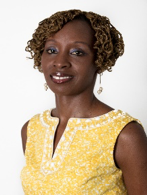
Erasmus University College (EUC) is the international honour’s college of Erasmus University (EUR) that offers bachelor programmes in Liberal Arts and Sciences. The college provides students with a well-rounded education, an academic skill-set and the intellectual tools that help them to be successful in a wide range of careers. Students can choose or combine majors in Economics and Business, Life Sciences, Social and Behavioural Sciences and Humanities. The college employs an active approach to education through Problem Based Learning. The college has a residential requirement for first-year students to live together with their fellow students from all over the world; this helps to build bonds in the first year, but leaves students independent in years two and three. There are six faculties and three institutes at Erasmus University, with about 15.000 undergraduate and 1.500 postgraduate students.
For more information please visit https://www.eur.nl/en/euc/
TEAM:
EUC has a residential requirement for first-year students to live together with their fellow first-year students from all over the world; this helps to build bonds in the first year. This arrangement replaces mistrust and fear among the students with co-existence and harmony and illustrates that change has to come from individuals. EUC also offers a course on Conflict Resolution as one of the courses in the international relations major. The course covers many issues related to the theories of Conflict Resolution, causes of conflicts, prevention of conflicts, (issues of early warning and early action), halting ongoing violent conflict, the role and forms of mediation, peacekeeping and how to end violent conflict, build peace and transform societies to reconcile their differences. At the end of the course students are acquainted with the nature of conflict resolution as a distinct theoretical and applied field of study and have some understanding of current thinking about major approaches to war prevention, mitigation, settlement, and post-war reconstruction projects. The course connects theory to practice through discussion, research and case study review of real events. These can be incorporated into the project to widen the university students’ perspective on international conflicts with a focus on improving the relations between different cultures, ethnicities and religions. In September 2015, Erasmus University welcomed and hosted about 200 Syrian refugees in the sports center for a few days before they were transferred to a different location. Several students and staff members availed themselves to assist and make the stay of the refugees comfortable.
Phyllis Livaha
 Phyllis Livaha, the key person, studied both political science and law. She is a senior lecturer and tutor of international relations and international law. She has taught courses in international relations and international law for over five years. Conflict Resolution is one of the courses she teaches and she has supervised several bachelor and master theses related to various areas of Conflict Resolution, like peace keeping and peace building. Coming from a country that is considered to be ethnically divided, Ms. Livaha has given several lectures to expand students’ understanding of these issues in comparative terms, so that by the end of their studies, the students are enriched about the role that ethnicity plays in the politics of many different societies across the world. Ms. Livaha is also a volunteer with Takecarebnb, an organization that is working on creative solutions for the integration of refugees into Dutch society. In one of her lectures, she invited a student who is an immigrant from Sri Lanka to give a presentation on her life in the Netherlands. She also invited two immigrants from Syria to give their stories and their thoughts on the war.
Phyllis Livaha, the key person, studied both political science and law. She is a senior lecturer and tutor of international relations and international law. She has taught courses in international relations and international law for over five years. Conflict Resolution is one of the courses she teaches and she has supervised several bachelor and master theses related to various areas of Conflict Resolution, like peace keeping and peace building. Coming from a country that is considered to be ethnically divided, Ms. Livaha has given several lectures to expand students’ understanding of these issues in comparative terms, so that by the end of their studies, the students are enriched about the role that ethnicity plays in the politics of many different societies across the world. Ms. Livaha is also a volunteer with Takecarebnb, an organization that is working on creative solutions for the integration of refugees into Dutch society. In one of her lectures, she invited a student who is an immigrant from Sri Lanka to give a presentation on her life in the Netherlands. She also invited two immigrants from Syria to give their stories and their thoughts on the war.
EUR is responsible for co-leading the Need Analysis. The key persons lead the creation of a survey structure, selection of interviewees, preparing the questions, and the supervision and analysis of the surveys. They also worked with other partners to contribute to the development of online course curriculum.
